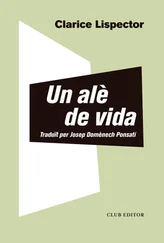In this particular Swiss convent, whenever a man crossed the doorway, the floor had to be scrubbed and alcohol burned over the spot where he had been standing.
Then winter would return once more and Rosa’s hands became inflamed and covered with chilblains. Her bed was so cold that it was impossible to sleep. In that darkened dormitory, with her open eyes peering over the sheet, she would espy those tiny glancing thoughts. In some strange way those thoughts were paradise.
How and why, at the age of twenty, Rosa suddenly decided to leave the convent, I cannot say, nor could she herself explain. But she had made up her mind, although everyone opposed the idea. Her resolve was firm, her resistance passive. The nuns were horrified and warned her that she would go to Hell. But because Rosa made no attempt to justify her decision, she got her way. She left the convent and found employment as a housemaid.
She left carrying her small bundle of possessions, her head shaved, her skirt down to her ankles.
‘The world struck me as being…’ but she could not explain.
With her Southern Italian features, her oval eyes, and curves which were slow in asserting themselves, Rosa went to live with a family which had been recommended. There she remained day and night, month after month, never going out. She explained to me that at that time she did not know how ‘to go out’. She contemplated the wonders of winter from the windows without venturing out into that Paradise: she observed everything through those windows and no one could say for certain whether she was happy or sad. Her face was still incapable of expressing emotion. She looked through those windows with the rapt attention of someone at prayer, her arms folded, her hands tucked into her sleeves.
One afternoon when everything struck her as being much too vast — a free afternoon without any household chores was almost sinful — she felt that she should apply herself to something, adopt a much more disciplined, even pious attitude. She went downstairs, went into the drawing-room and selected a book from the bookcase. She went back upstairs and sat bolt upright in a chair, for she was unaccustomed to seeking comfort and pleasure. She began to read with concentration. But her spherical head — where tufts of vigorous hair had begun to sprout — her head became muddled. She closed the book, lay down, and closed her eyes.
The family waited for her to serve dinner, but Rosa did not appear. They went to look for her. Her eyes were swollen, inflamed, expressionless: she was burning with fever. The mistress of the house spent that night looking after her, but there was nothing anyone could do: Rosa complained of nothing and asked for nothing as the fever gripped her. Next morning, she looked thinner, her eyes half-closed. And she passed another day and night in the same condition. The family sent for the doctor.
He enquired what had happened, for there were clear symptoms of a nervous disorder. Rosa made no reply, nor did it occur to her to answer the doctor’s questions, for she was not accustomed to speaking up for herself. At this point, the doctor chanced to look at the bedside table and his eye caught sight of the book. He examined it, and looked at her with some alarm. The book was entitled Le corset rouge . He warned Rosa that she should not read such a book under any circumstances. She had barely left the convent, and her innocence constituted a threat. Rosa said nothing. The doctor continued:
— You must not read such books because they are false.
Rosa opened her eyes a little more widely for the first time. The doctor swore to her that the book was full of lies. He had sworn…
Rosa sighed and shyly gave a wistful smile:
— I thought that everything which was written and published in a book was the truth, she said, looking modestly at the first honest man she had ever known.
The doctor said — and one can imagine in what tone of voice:
— Nonsense.
Rosa slept, thin and pallid. Her fever abated and she was soon back on her feet. With time, people began to notice: what lovely black hair you have, they told her. Touching her hair, Rosa would reply: really!
How Rosa could be so happy at the age of forty continues to be a mystery. How she laughed. I know that on one occasion she tried to commit suicide. Not because she had left the convent. But because of a love affair. She explained that, when she fell in love, she had no idea that ‘things were really like that’. Like what? She made no attempt to answer my question. Ten years older than her lover, she laughs under that great mane of black hair and insists: I really cannot explain why I prefer autumn to the other seasons. I think it’s because in the autumn things wither so quickly.
She also insists: I’m not very bright. I have the impression that Madam is much more intelligent than I am. She also asks me: ‘Has Madam ever cried like a fool without knowing why? for I have!’ — and she bursts into laughter.
As an epigraph for my novel A Paixão segundo G.H. [The Passion according to G.H.] I chose, or rather, miraculously came across, after finishing the book, a quotation from the art historian Bernard Berenson. Even though it had little to do with my novel, I could not resist using the phrase.
But in my enthusiasm, I made one mistake. I made no attempt to translate the epigraph but left it in English, forgetting that the Brazilian reader is not obliged to understand another language. It would be difficult, however, to capture the beauty and perfection of Berenson’s own words in any other language:
A complete life may be one ending in
so full an identification with the non-self
that there is no self to die.
Not so long ago I experienced an anguished sense of loss. Without giving the matter much thought, I made a sudden decision and told my hairdresser Luis Carlos to crop my hair. As he began cutting and locks of hair fell limply on to the floor, I looked in the mirror only to be confronted by an expression of alarm at my own rashness. And I experienced a sudden feeling of loss. Why loss? This feeling is so ancient that it recedes through the depths of time to a prehistoric age. A woman never cuts her hair because her femininity resides in those long tresses. Besides, when my boys were children they used to enjoy playing with my long hair. And recently when I visited a friend, her little girl who is five took great delight in endlessly combing my hair. There was something nice about the way those tiny hands communicated a sense of satisfaction. But now I had to accept having cropped hair and I promised myself that I would let it grow again. No sooner was I back home than I changed my mind. Long hair takes a long time to dry, it needs a lot of brushing and frequent visits to the hairdresser, where one has to endure the sheer torture of sitting underneath one of those absurd hair-dryers. Short hair, on the other hand, I can wash myself, then sit in the sun for a while and that is that. As I sat there daydreaming, I thought to myself: Have I lost my strength like Samson? Well, perhaps not my strength as such, but my power as a woman.
SWIMMING AGAINST THE TIDE
I have struggled all my life to cure this tendency to daydream, lest it should carry me into remote waters. But the effort of swimming against this gentle current takes away some of my vital strength. And if, in fighting off daydreams, I gain in terms of action, I inwardly lose something very precious which can never be replaced. But one of these days I shall have to go, without worrying where I might end up.
Читать дальше












